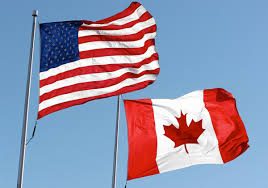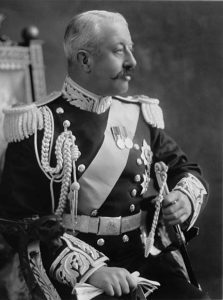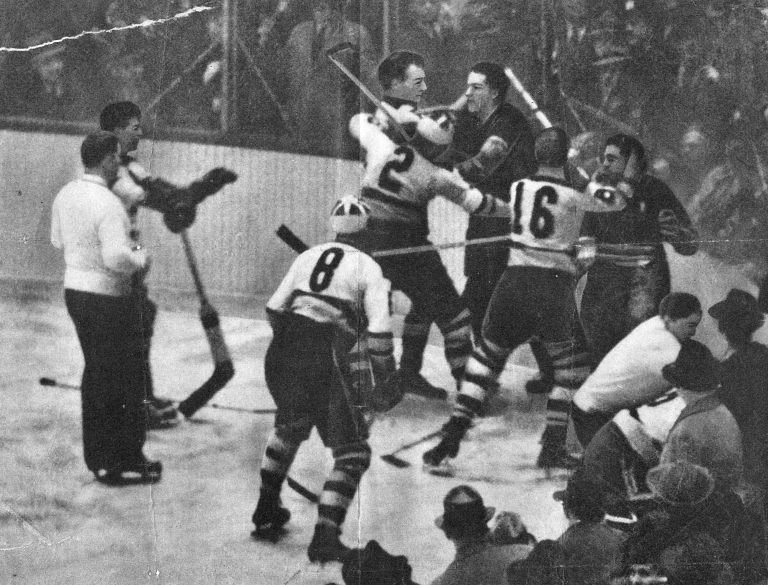 They did it in Ottawa. They did it in Calgary. Then, in Toronto. And then Monday night, in Nashville, Americans did it back. First, Canadian spectators booed the The Star-Spangled Banner north of the border. And so American fans in Tennessee booed O Canada right back when the Ottawa Senators came to Nashville this week.
They did it in Ottawa. They did it in Calgary. Then, in Toronto. And then Monday night, in Nashville, Americans did it back. First, Canadian spectators booed the The Star-Spangled Banner north of the border. And so American fans in Tennessee booed O Canada right back when the Ottawa Senators came to Nashville this week.
Shouted one irate Predators fan, “You gotta pay!”
Then, Nashville coach Andrew Brunette (who is a Canadian) told the U.S. Daily Mail. “I don’t like it. The NHL has been around 100 years and the U.S. and Canada both share this game. I don’t think there’s a place for booing the anthem.”
I happen to think he’s right. But I also wondered how the two national anthems got to be part of NHL protocol at all. Then, I got a call from the news-talk radio station CHQR in Calgary. Afternoon host Sarah Crosby, who calls me periodically on her “Connect” show to do quick-turnaround research on topical events, asked why we sing national anthems at sporting events in the first place.
“We don’t sing O Canada at plays, rock shows or movies. Why at NHL games?” Crosby asked.
It turns out that the precedent goes back in time much further than even the 108-year history of the National Hockey League. As well, and perhaps not surprisingly, singing national anthems before pro sports games has a direct connection to the kind of patriotism associated with the military, wars, and celebrating veterans, whose current members often sing or officiate at pro sports arenas before each game.
The date is May 15, 1862. The Union and Confederate armies in America have been at war for 13 months. And a baseball game is about to begin at in Brooklyn, N.Y., at – appropriately enough – Union Grounds ballpark. “At 3 o’clock,” reported the Brooklyn Daily Eagle, “the music arrived and the proceeding commenced (with) The Star-Spangled Banner, continuing to play at intervals throughout the contest.”
The precedent of singing “O say, can you see…” at significant baseball games was further cemented into sporting culture on Sept. 5, 1918, at the first game of the World Series between the Boston Red Sox and the Chicago Cubs. Again, against a military back drop of the Great War – the Armistice, on Nov. 11, is just weeks away, spectators are reminded that in 16 months of Americans’ service on the Allied side, 100,000 U.S. troops have died or been wounded.

It’s the seventh inning stretch and Red Sox infielder Fred Thomas, who’s served in the U.S. Navy, steps up from the dugout and salutes the flag. Other players join him, removing their caps and placing hands over hearts, as the band strikes up The Star-Spangled Banner, “marking the highest point of enthusiasm of the day.”
Meanwhile, Canadian sports historian Eric Zweig captured the moment that singing anthems migrated from baseball to hockey in his novel Hockey Night in the Dominion of Canada. In his work of fiction, Zweig includes the singing of God Save the King, Canada’s national anthem at an actual game between the Toronto Blue Shirts and Ottawa Senators on Dec. 26, 1918.

Remember, the Armistice to end the Great War on Nov. 11 is just weeks old, so many present would be military veterans. And when the Duke of Devonshire, Canada’s governor general, arrives to watch the game, reports the press, “the Governor-General’s Foot Guard played the national anthem and every person within the big rink stood up.”
Coincidentally, the first booing incident, in part Canadians’ response to President Donald Trump’s insulting remarks about Canada yielding to his trade tariffs and becoming the 51st state of the U.S. with Justin Trudeau as the 51st governor, also happened in Ottawa. Boos almost drowned out the singer Saturday night, prompting Ottawa Senators owners to say, “Our fans are passionate about their hockey and about their country.”
Whether we should sing or play national anthems at professional sporting events is not for me to say. But it has reminded me of a national anthem incident that didn’t spark hostility, but helped prevent it.

During the Second World War, at an allegedly friendly hockey game between RCAF and Canadian Army troops training in Nova Scotia, a fight broke out on the ice. When referees couldn’t break up the fisticuffs, a senior officer present ordered the military band (on hand to play the opening national anthem) to play it again.
The moment the troops on the ice heard the strains of God Save the King, the fighting stopped and everybody stood at attention. The ploy was needed several more times that night. But it worked every time.
In the end, the anthem kept the peace.